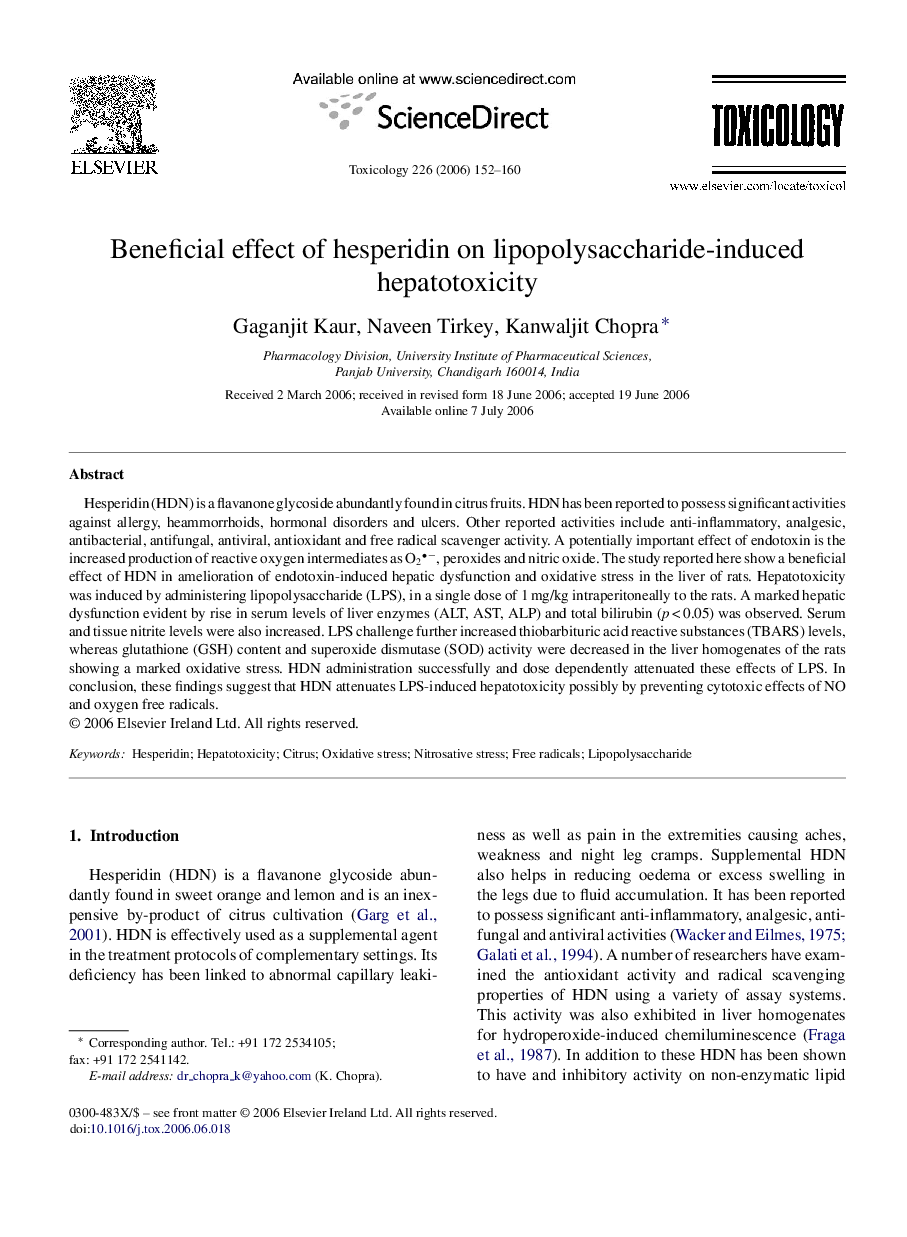| کد مقاله | کد نشریه | سال انتشار | مقاله انگلیسی | نسخه تمام متن |
|---|---|---|---|---|
| 2598110 | 1562430 | 2006 | 9 صفحه PDF | دانلود رایگان |

Hesperidin (HDN) is a flavanone glycoside abundantly found in citrus fruits. HDN has been reported to possess significant activities against allergy, heammorrhoids, hormonal disorders and ulcers. Other reported activities include anti-inflammatory, analgesic, antibacterial, antifungal, antiviral, antioxidant and free radical scavenger activity. A potentially important effect of endotoxin is the increased production of reactive oxygen intermediates as O2−, peroxides and nitric oxide. The study reported here show a beneficial effect of HDN in amelioration of endotoxin-induced hepatic dysfunction and oxidative stress in the liver of rats. Hepatotoxicity was induced by administering lipopolysaccharide (LPS), in a single dose of 1 mg/kg intraperitoneally to the rats. A marked hepatic dysfunction evident by rise in serum levels of liver enzymes (ALT, AST, ALP) and total bilirubin (p < 0.05) was observed. Serum and tissue nitrite levels were also increased. LPS challenge further increased thiobarbituric acid reactive substances (TBARS) levels, whereas glutathione (GSH) content and superoxide dismutase (SOD) activity were decreased in the liver homogenates of the rats showing a marked oxidative stress. HDN administration successfully and dose dependently attenuated these effects of LPS. In conclusion, these findings suggest that HDN attenuates LPS-induced hepatotoxicity possibly by preventing cytotoxic effects of NO and oxygen free radicals.
Journal: Toxicology - Volume 226, Issues 2–3, 21 September 2006, Pages 152–160